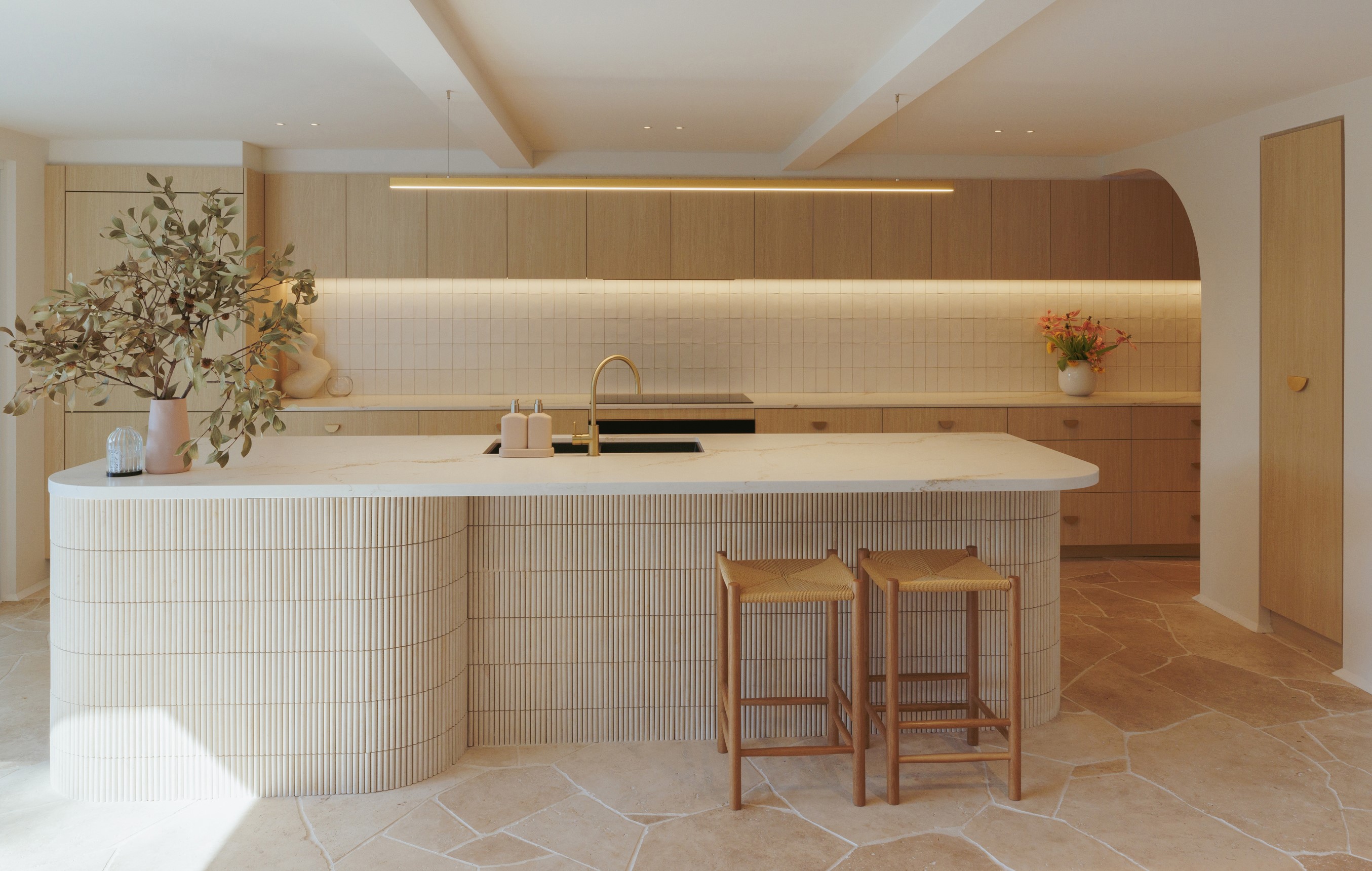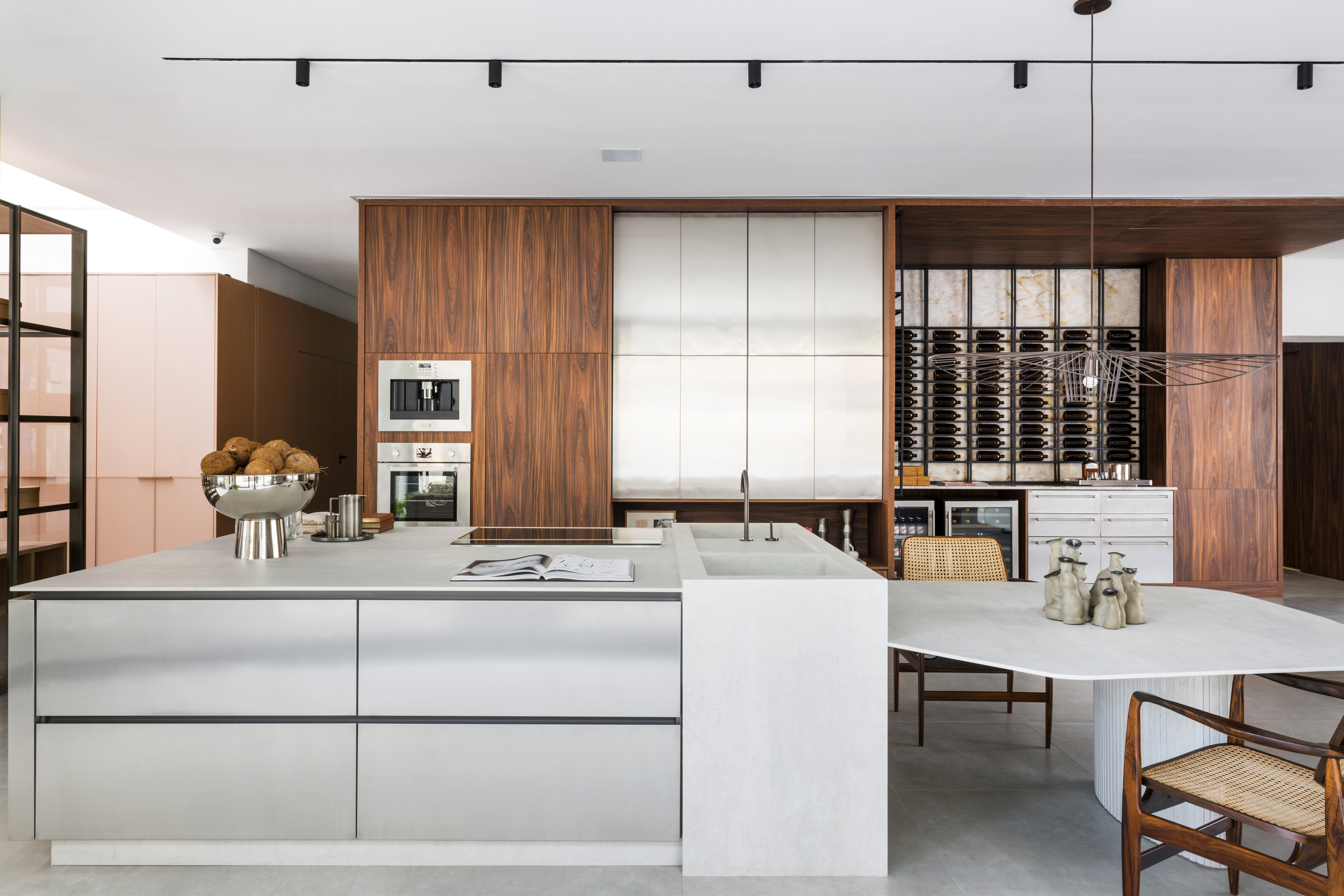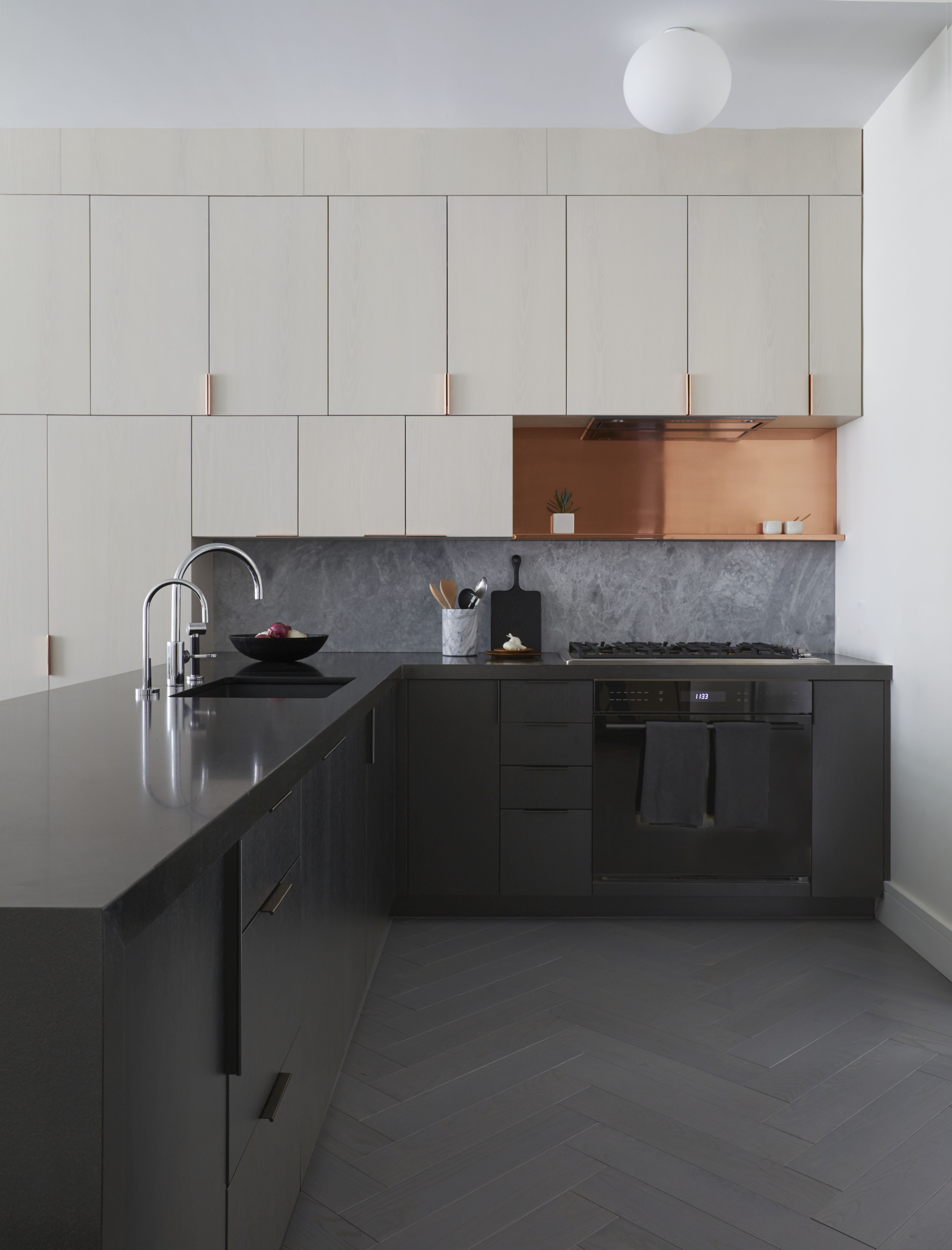
Among the many decisions that you need to make while designing the kitchen, the color choices of each are important for tying the scheme together.
The flooring is the foundation of the room. Still, while it's always considered in terms of how it aligns with your scheme's color palette and finishes, it's not often thought of in relation to other elements individually.
The question we're looking at today is whether flooring should match your countertops. As separate elements, it's probably something you've never really thought about — after all, your kitchen flooring often never abuts your countertop directly. But because these finishes makes up the horizontal planes of your kitchen, experts say there are some reasons why floors and countertops should be related in the design.
Here's what kitchen designers had to say about this question.
Should Kitchen Floors Match Countertops?
There are different approaches to matching floors and countertops. While it's possible to match like-for-like materials - think marble for a kitchen countertop idea and a luxe floor - generally floors and countertops are made from different materials.
Matching, then, is more a case of using the same, or similar, colors to get the effect. In theory, no kitchen countertops don't need to match the floors at all. You'll often see kitchens with dark floors and light countertops, or light floors and dark countertops.
However, in modern kitchen design, harsh contrasts might be something you want to avoid. "Classically, you would have seen kitchens all the time with dark floors and dark cabinets crowned with a light countertop," says Hugh Metcalf, an editor for Livingetc.com. "However, the design mood of today is a lot softer, a lot more cohesive, and pulls less on contrasts between colors as it does on near-tonal color palettes."
It's hard to consider the two elements without the cabinets, too — the filling to their proverbial sandwich. "I think the color of cabinets is absolutely key in pulling together any floor and counter material," advises Lucie Ayres, founder of 22 Interiors. "The overall visual should be cohesive and complementary in my opinion — avoiding abrupt color changes. A beautiful mid-tone color or wood stain would work as an in-between."
So, should countertops and floors match completely? Probably not, but complete contrasts between the two probably isn't the way to go, either.
Ae there any cons of matching counters and flooring?

The con is quite simply, that you may end up with a kitchen that feels too one-dimensional, and at times boring. Contrasting tones not only add drama to a space but also dimension, and depth.
Since the walls, floor, and countertops are the largest surfaces in the room, their color and material choices make the biggest impact on the space. Experts warn against using heavily patterned flooring, that is reflected on the counter and backsplash patterns as well.
How can you match light kitchen flooring and counters?

The key lies in lightly coordinating the look instead of completely matching it. A soft-toned floor with a light yet textured counter and cabinets will create a lovely modern kitchen look; one that is easy to live in. Pale surfaces will reflect light easily, making this space a breeze to be in.
“White kitchens are far from boring," says Briana Gershenzon, partner and chief of design at Renovation Sells. "Incorporating different shades of white adds the perfect tonal variation to keep the space bright yet layered. One of our favorite schemes is warm white cabinets paired with textured backsplash tile, natural stone flooring, and aged brass lighting and hardware. The result is a timeless kitchen that’s anything but bland."
Go for pale wood or laminate flooring, and choose a quartz or corian countertop in gorgeous textures. Another way to add depth to the scheme would be with a white or cream ceramic kitchen sink, and muted wall paints.
How can you match dark kitchen flooring and counters?

A tone-on-tone aesthetic can sometimes read as neutral, so it won't feel overwhelming. For a streamlined, cohesive look, consider matching dark marble flooring with a dark marble countertop, while keeping the cabinets in light wood, as they act as a bridge, breaking up the color and flow. Another good kitchen color scheme to experiment with is dark gray floors and gray, granite counters. This can feel sophisticated and timeless.
"For darker countertops, my opinion is that they can stand out as an accent more so than the other way around," adds Lucie.
A classic look, of course, is with dark wooden floors and counters. You can go in for white walls to balance out the scheme.
Price: $2.69 for a sample
How can you contrast the kitchen flooring and counters?

Create a lovely two tone kitchen with contrasting flooring, counters, and cabinets. For a more subtle look, the best way is to play with softer contrasting tones or textures — perhaps a white marble floor with a beige laminate counter. Or a light wood flooring with a pink natural stone counter.
If you want a truly dramatic kitchen, consider a color block scheme, with dark flooring and a light counter. Think light wood floor tiles and a dark granite counter, or black flooring matched with a white laminate counter.







